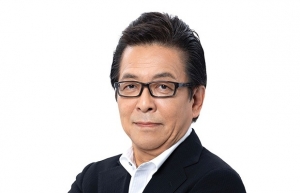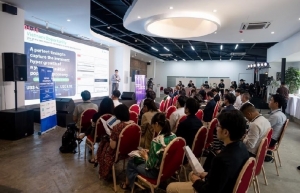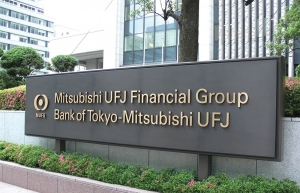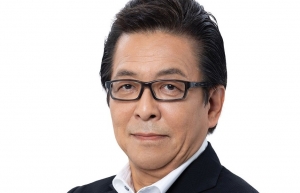Japanese escalate investment studies
Mitsui & Co. Global Strategic Studies Institute, an in-house think tank for Mitsui and 18 business members, made a one-week trip to various countries in Asia-Pacific, including Vietnam, to survey the investment environment, holding a working session with experts from the Institute for International Investment Studies (ISC) on November 15.
 |
| Japanese escalate investment studies, illustration photo/ Source: freepik.com |
Jun Aketa, principal executive advisor of the institute, said, “After a long time investing overseas, we just need to improve the presence for Japanese companies in the region and in Vietnam. We want to listen to Vietnam’s opinion about the attractiveness, strengths and weakness of the Japanese companies as well as their challenges so that we can change and revise our presence.”
Based on the information collected from the trip, the institute will make a report on business strategies for the region.
“Japanese companies have invested a lot in China. But they will also point out there are some strategic growth problems and some anxiety about the political system as well as the economic situation. Thus, many Japanese companies consider a plan B for their expansion, and that’s why we decided to come to Vietnam on this trip, among other nations.”
During the working session with the ISC, the Japanese delegation concentrated on exchanging topics relating to the business situation of US, European, Chinese, and Japanese companies in ASEAN; the strengths and weaknesses of Japanese companies in the Indo-Pacific region; and the impact of free trade agreements on the investment and business of Japanese companies.
In addition, they wanted to listen to opinions on cooperation opportunities, and the new investment sector in Vietnam. “Mitsui is one of the largest corporate conglomerates (keiretsu) in Japan, thus their investment activity must be calculated carefully,” said ISC president Phan Huu Thang. “Study activity is critical, especially amid the complicated and unpredictable global situation affecting investment activity. The good news is that this region and Vietnam in particular are still considered a safe investment destination.”
Thang added that the trip has opened up big opportunities for Vietnam in attracting new investment inflow from Japanese companies. “It is rare that a keiretsu leads nearly 20 members to many countries to work with institutes and businesses for information on specific topics, instead of participating in forums to discuss macro policy as is usual,” he said.
Since the start of 2023, Japanese investors have pumped just over $3 billion into the country. Accumulated capital as of October was $74.4 billion across almost 5,230 projects.
More activity could be on the way. During a working session with Prime Minister Pham Minh Chinh in Hanoi on November 13, president and CEO of Marubeni Corporation Masumi Kakinoki underlined its strategy to expand in Vietnam.
“Vietnam is one of our most important markets in Asia. Marubeni Corporation plans to invest billions of US dollars with a focus on new seven sectors, such as energy, processing, exports, and infrastructure development. We hope the government will direct its ministries and local authorities to facilitate the implementation of these projects,” Kakinoki said.
The group has plans to develop O Mon II thermal power plant and Quang Ninh liquefied natural gas power project, as well as solar and wind farms, industrial zones, and smart urban projects, among others.
In the framework of the sixth meeting of the Vietnam-Japan Joint Committee for industrial, trade and energy cooperation took place in Hanoi on November 3, Minister of Industry and Trade Nguyen Hong Dien and Japanese Minister of Economy, Trade and Industry Nishimura Yasutoshi agreed to establish a joint working group to build co-creation projects to boost future-oriented industries such as semiconductors, AI, and biotechnology.
| Le Huu Quang Huy, Japanese investors need to pay attention to four points when investing in Vietnam. First are the various free trade agreements that Vietnam and Japan have both entered into over the years. Secondly, Japanese investors need to pay attention to incentives. Thirdly, they should pay attention to choosing the industry that you have a good position to foster investment in Vietnam. They should also embrace the difference between Vietnam and neighbouring nations, focussing on funding forms such as joint ventures and M&A. Meanwhile, investment in tourism is now limited for Japanese interests. Vietnam is renowned as a regional tourism hub. But in Hanoi, even in Ho Chi Minh City, few are hotels developed by Japanese investors. A cooperation area with promise, however, is chip manufacturing. Vietnam, like China, also has rare earths and is in a strong position in terms of manufacturing chips. Currently, the north of Vietnam has more advantages compared to the south in attracting capital inflow from China, simply because of geography. In addition, many Japanese and South Korean firms also choose the north for their investment for this reason. Japan boasts original technology, power, and know-how, and can focus on green tech and renewable energy. It should become a bigger base in the near future for global investors to invest in not only Vietnam but also for Asia-Pacific as a whole. When it comes to semiconductors, while the US wants to focus more at home, many big groups from the likes of South Korea are paying attention to Vietnam. Thus, investors should concentrate on semiconductor assembly here. Furthermore, Japanese firms could also focus more on AI technology and applications in manufacturing in Vietnam. Le Anh Dung, Japanese investors need to pay attention to four points when investing in Vietnam. First are the various free trade agreements that Vietnam and Japan have both entered into over the years. Secondly, Japanese investors need to pay attention to incentives. Thirdly, they should pay attention to choosing the industry that you have a good position to foster investment in Vietnam. They should also embrace the difference between Vietnam and neighbouring nations, focussing on funding forms such as joint ventures and M&A. Meanwhile, investment in tourism is now limited for Japanese interests. Vietnam is renowned as a regional tourism hub. But in Hanoi, even in Ho Chi Minh City, few are hotels developed by Japanese investors. A cooperation area with promise, however, is chip manufacturing. Vietnam, like China, also has rare earths and is in a strong position in terms of manufacturing chips. Currently, the north of Vietnam has more advantages compared to the south in attracting capital inflow from China, simply because of geography. In addition, many Japanese and South Korean firms also choose the north for their investment for this reason. Japan boasts original technology, power, and know-how, and can focus on green tech and renewable energy. It should become a bigger base in the near future for global investors to invest in not only Vietnam but also for Asia-Pacific as a whole. When it comes to semiconductors, while the US wants to focus more at home, many big groups from the likes of South Korea are paying attention to Vietnam. Thus, investors should concentrate on semiconductor assembly here. Furthermore, Japanese firms could also focus more on AI technology and applications in manufacturing in Vietnam. |
 | Japanese investors won’t shy from possible M&As Despite market turbulence, Japanese investors are stepping up their mergers and acquisitions in Vietnam in 2023 with increasing deal values. Masataka “Sam” Yoshida, head of the Cross-border Division of RECOF Corporation, spoke with VIR’s Thanh Van about dealmaking activities involving Japanese investors in Vietnam. |
 | Japanese investors tap into startups Japanese investors are growingly interested in Vietnamese tech startups to boost footprints and tap into local demand. |
 | Japanese VCs expand tranche of investment Despite headwinds in capital mobilisation, Japanese venture funds are doubling down on Vietnam’s startup ecosystem, underscoring the nation’s pivotal role in their quest to cultivate a vibrant Southeast Asian startup landscape. |
 | Japanese investors still motivated by M&A promise Despite shrinking dealmaking activities involving Japanese investors, Vietnam still ranks high in the world in the top 10 mergers and acquisitions destinations for Japan. Masataka “Sam” Yoshida, head of the Cross-border Division of RECOF Corporation, talked to VIR’s Thanh Van about the landscape of Japanese deals so far this year. |
What the stars mean:
★ Poor ★ ★ Promising ★★★ Good ★★★★ Very good ★★★★★ Exceptional
Related Contents
Latest News
More News
- Kurz Vietnam expands Gia Lai factory (February 27, 2026 | 16:37)
- SK Innovation-led consortium wins $2.3 billion LNG project in Nghe An (February 25, 2026 | 07:56)
- THACO opens $70 million manufacturing complex in Danang (February 25, 2026 | 07:54)
- Phu Quoc International Airport expansion approved to meet rising demand (February 24, 2026 | 10:00)
- Bac Giang International Logistics Centre faces land clearance barrier (February 24, 2026 | 08:00)
- Bright prospects abound in European investment (February 19, 2026 | 20:27)
- Internal strengths attest to commitment to progress (February 19, 2026 | 20:13)
- Vietnam, New Zealand seek level-up in ties (February 19, 2026 | 18:06)
- Untapped potential in relations with Indonesia (February 19, 2026 | 17:56)
- German strengths match Vietnamese aspirations (February 19, 2026 | 17:40)

 Tag:
Tag:



















 Mobile Version
Mobile Version